Join us Sundays at 4:30pm for new episodes of The Early Link Podcast. Listen live at 99.1 FM in the heart of Portland – or online anywhere at PRP.fm.
On this episode of The Early Link Podcast, host Rafael Otto speaks with three guests about the latest legislative session here in Oregon. They talk about highs and lows, what passed and did not in the interest of children and families, and what it was like to move through the session virtually.
Guests:
Dana Hepper is the Director of Policy & Advocacy at Children’s Institute. She oversees the organization’s legislative advocacy and community engagement work. Dana started her career as an elementary school and preschool teacher, then she worked at Stand for Children for nine years doing community organizing, policy, and advocacy. She graduated from Barnard College with a bachelor’s in political science and a minor in elementary education. Dana also serves on the board of Partnership for Safety and Justice and the Safety and Justice Action Fund focused on criminal justice reform.
Anthony Castaneda works as a Policy Manager at Latino Network, a local non-profit transforming the lives of Latino children, youth, and families in the Portland metro area. He serves on multiple steering committees to draft and move ambitious local and state policy. Additionally he is currently serving a two-year term on the Portland Charter Commission, a process that takes place every decade to update the governing document of the City of Portland. After completing Portland State’s Overseas Russian Flagship Program in 2016 with support from the Department of Defense’s David L. Boren Scholarship, Anthony enrolled in a joint graduate program at the University of Michigan in Ann Arbor, Michigan. While in the Gerald R. Ford School of Public Policy, he was awarded the Department of Education’s FLAS fellowship and nominated as a Weiser Fellow for Emerging Democracies, which allowed him to return to Kazakhstan to conduct public opinion research on nationalism for his thesis. In 2018, he earned a joint Master’s of Public Policy and Master’s of Arts in Russian and Eurasian Studies.
Amanda Manjarrez brings creative leadership and a deep commitment to social justice to her work as Director of Public Policy and Government Affairs at Foundations for a Better Oregon/Chalkboard Project. A longtime advocate for racial equity and good governance, she collaborates with Oregonians across the state to co-design, test, and champion systems change strategies that deliver lasting impact for children and families. Previously, Amanda served as Director of Advocacy at Latino Network, as Advocacy Director for the Coalition of Communities of Color, and as Chief Strategist at the Center for Civic Policy in Albuquerque, New Mexico.
Summary:
Amanda begins by noting the general mood post-session as “hopeful and exhausted.” She and Dana state that, while there were difficulties with a virtual legislative session, it was largely more accessible to those who could not readily make the commute to Salem. All three then share highlights from the bills in this session pertaining to early childhood that passed. From a ban on suspension and expulsion, to expanding student access plans, to even allowing students to wear their tribal regalia at graduation ceremonies.
Conversely, they then discuss what they wish had passed. Dana touches on a bill which would have massively improved Oregon’s childcare system. In addition, she mentions one which would have given some protection to childcare providers operating out of rental homes. Anthony brought up Senate Joint Memorial (SJM) 1 and how it relates to immigration and enforcement in Oregon. Although it did not pass, it heavily raised awareness.
Next, each of them name various individuals, advocates, and organizations that were champions of the various bills, and put a spotlight on the work of the advocacy and leadership they witnessed during this time. Both Amanda and Anthony then stress the importance of equity throughout these types of legislative processes; while Dana expresses interest in how to make it accessible to individuals that are much more directly impacted by policy and budget decisions than the legislators themselves.
Additional Resources:
House Committee on Early Childhood
Joint Committee On Ways and Means Subcommittee On Education
Host:
Rafael Otto, Director of Communications, Children’s Institute
~ Thanks to Children’s Institute, working to ensure that every child in Oregon has the best start in life
- Many Roads to Here: They Will Be Free Soon - April 6, 2024
- Many Roads to Here: Pioneering Pilot Breaks Barriers - March 2, 2024
- Many Roads to Here: 200% American - February 2, 2024


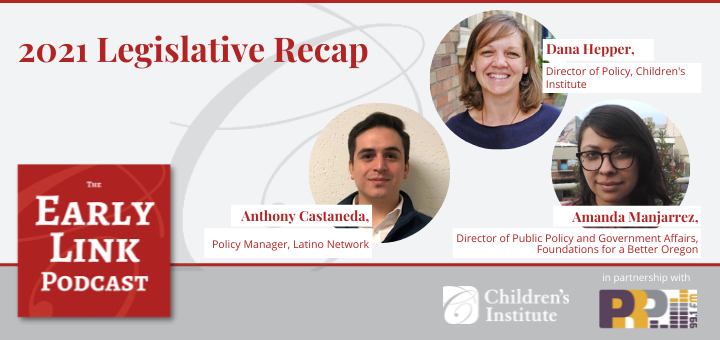
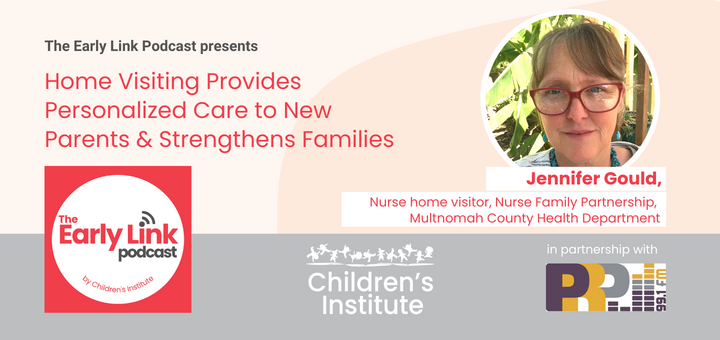
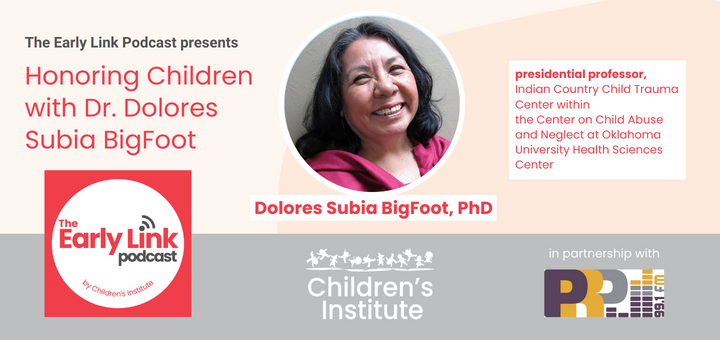
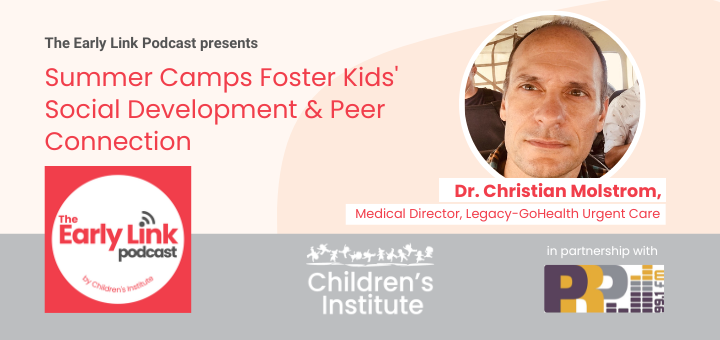
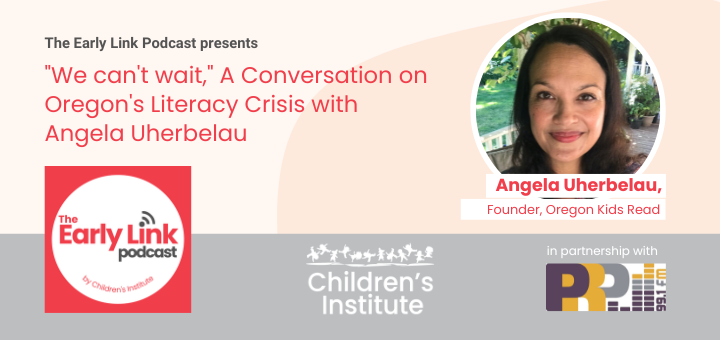
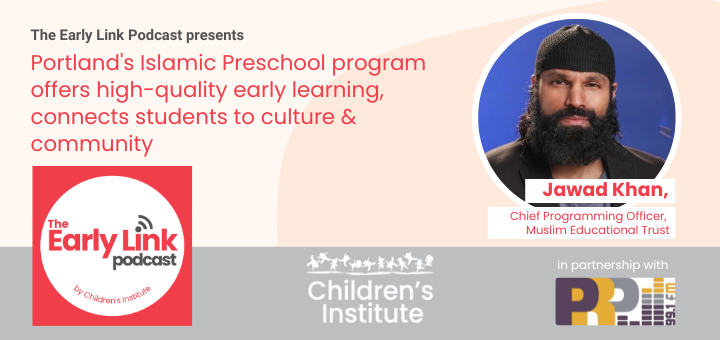

Leave A Comment